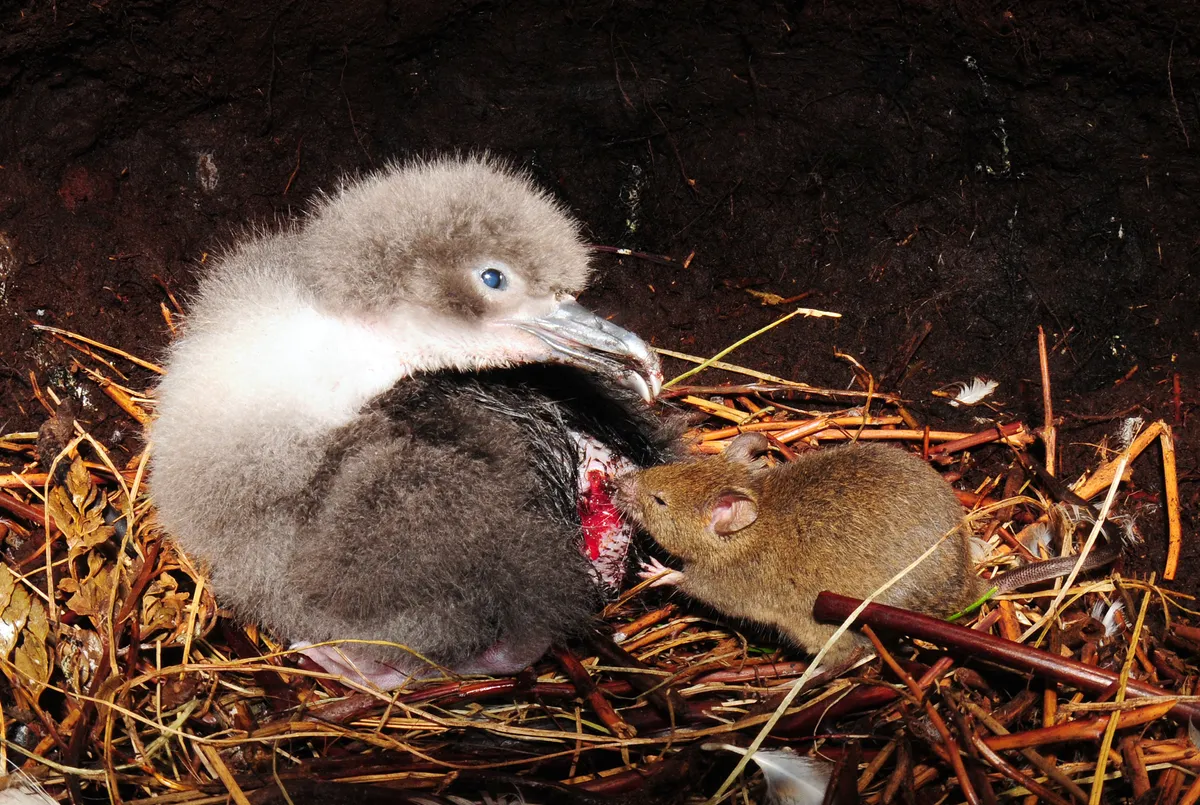An ambitious island restoration programme, which aims to protect species like the Tristan albatross (pictured above) from extinction, has not gone according to plan after efforts to eradicate all the mice were not successful.
A single mouse was spotted in mid-November via monitoring equipment on the island, and its thought that it's unlikely to be the only one.
A single mouse has been spotted on Gough Island. © Gough Island Restoration Team
House mice were first introduced to Gough Island in the South Atlantic by sailors during the 19th century, and have since been putting some seabird species at the risk of extinction by eating their eggs and chicks.
Since their introduction, the rodents have evolved to be 50% bigger than the average house mouse, and have learnt to eat the eggs and even live chicks.
It's estimated that the mice are responsible for the loss of two million seabird eggs and chicks each year on Gough Island.

Of the 24 species of bird nest on the island, 22 of are seabirds, including the Atlantic petrel (pictured above) and the Tristan albatross, which are listed as Endangered and Critically Endangered respectively on the IUCN Red List. The island is home to 99% of the world's population of Tristan albatrosses.
The Gough Island Restoration Team had worked to removed all the mice from the island.
“This was one of the most ambitious island restoration programmes ever attempted,” says Beccy Speight, chief executive of the RSPB, “bringing together experts from around the world to protect globally endangered seabirds in what many would consider one of the most remote and difficult to reach locations on Earth. With over a decade of planning and given the logistics involved, this has been the conservation equivalent of landing on the Moon.
“We needed to take this urgent action to save millions of eggs and chicks from predation, prevent extinctions and to undo the damage caused by mice which humans unwittingly allowed onto the island in the past. We are confident that through this partnership we put everything in place to give the project the best chance of being successful. Although only one mouse has been sighted so far, unfortunately experience would tell us that it is unlikely to be the only one.
“Although it appears we have fallen short of our target, it is too early to know what this means or just how much time we might have bought the seabirds of Gough. We are continuing to monitor the island and assess the situation. The situation at Gough and threat to the unique seabirds of this island only serve to underline the importance of effective biosecurity measures on currently predator-free islands to prevent invasive species arriving in the first place and devastating native wildlife, and the need for island restoration projects to protect affected species from extinction.”
Main image: A Tristan albatross fledgling. © M Jones
